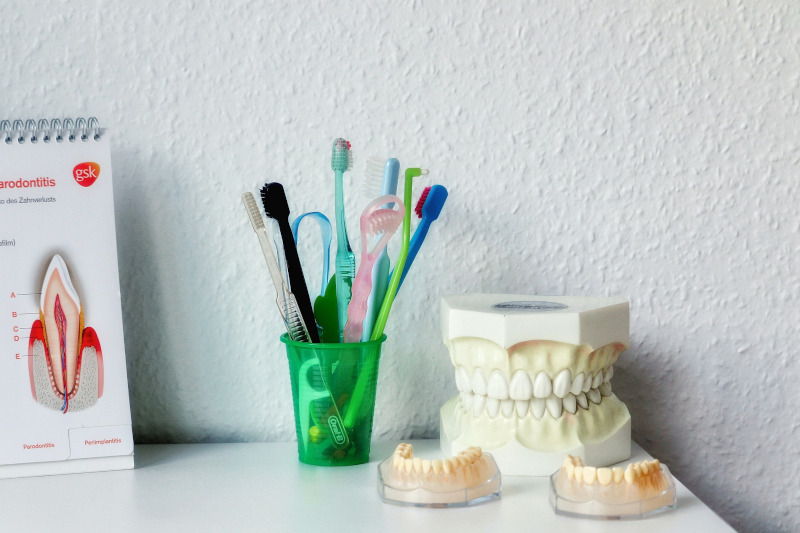Gingivitis is an inflammation caused by a build-up of plaque around the teeth and over the gums. If left untreated, gingivitis can lead to problems in the mouth, such as bleeding gums, bad breath and recession of the gums from the teeth. Gingivitis is also an early-warning sign of gum disease.
Plaque is a colourless coating of bacteria that is consistently produced by the mouth, and leaves a film over the teeth and gums. The toxins in the bacteria are usually removed when a daily brushing and flossing routine is established.
If plaque is not removed regularly, the toxins begin to attack the delicate gum tissues, which can lead to a hardening of the plaque, or a transformation into tartar. At that stage, only a dentist can remove it.
How can you tell if you have Gingivitis?
As Gingivitis is not painful in its early stages, many sufferers can be unaware that they are affected, although some sufferers experience tenderness in the gums.
The first signs can include a reddening of the gums around the teeth, and small amounts of blood on your toothbrush or dental floss after brushing. You may also notice a small change in your gums, as a softening of the soft tissues around the teeth (gingival tissues) is a common symptom. There may be some recession of the gums, and this will make the teeth look longer.
If you suspect you may have Gingivitis, a dentist will be able to confirm or deny your suspicions very quickly during a routine check-up, or with a general appointment. Make sure you address this quickly with your dentist, and avoid any progression of the disease to something more serious.
How can Gingivitis be treated?
If caught at an early enough stage, Gingivitis can and should be treated quickly, to avoid a progression of the disease into Periodontitis, which can leave the sufferer with permanent damage to the teeth, connective tissues and the bones of the jaw.
Treating Gingivitis at an early stage is a straightforward process, involving removal of the hardened plaque or tartar build-up above and below the gum line by your dentist during a ‘scale and polish’ treatment. If the disease has progressed to another stage, or has led to Periodontitis, your dentist will give you advice about treatment that you need.
How can Gingivitis be prevented?
Prevention of Gingivitis is far better than treatment, and is very easy. The establishment of a regular brushing and flossing oral routine is the only way to prevent the onset of Gingivitis and other issues that can affect the delicate periodontal and gingival tissues of the mouth.
Looking after your teeth and gums can not only give you a healthy mouth, but can elevate your confidence levels and make you feel happier.
- Maintaining a regular brushing and flossing routine, in addition to making sure that your dentist has a regular look inside your mouth, ensures that plaque is removed and is not allowed to build up to unhealthy levels.
- Using a bacterial mouthwash can also help, and is a good addition to your bathroom cabinet.
- Tartar-control toothpaste products are readily available, if you are susceptible to Gingivitis, and should be used twice-daily
- Flossing with a good-quality dental floss product once a day to remove bacteria between the teeth.
Dental Excel dentists in Brisbane and the Sunshine Coast can help you with Gingivitis if you are affected. Contact us to make your appointment today, and let us help you keep a healthy mouth for life!

